Are you considering ending your partnership with an event planner? Whether it's due to changing needs or differing visions, navigating this decision can feel daunting. In this article, we'll guide you through crafting a professional contract termination letter that maintains goodwill and clarity. Let's dive in and explore the essential elements that will make your letter effective and respectful!

Clear Identification of Parties
In the context of an event planner contract termination, clear identification of the parties involved is crucial. The first party typically includes the event planner's full legal name and business entity (e.g., ABC Event Planning LLC, a limited liability company registered in New York), along with contact information such as an address or email. The second party is often the client (individual or organization), whose legal name and contact details (like XYZ Corporation, a registered company in California) are necessary. Ensuring clarity in this section helps avoid any potential disputes over identity later in the contract termination process, establishing a well-defined relationship status between the involved parties.
Reference to Original Contract
The decision to terminate an event planning contract often arises from various factors. Typically, an original contract outlines essential elements such as event dates, locations, services provided, and payment terms. In circumstances where expectations are unmet, like insufficient communication or missed deadlines, termination becomes necessary. Proper notice period, stipulated in the original contract, must be respected, typically ranging from 30 to 60 days. The venue, catering, and other vendors involved may also need to be informed, ensuring they can adjust their schedules. Legal considerations might include fulfilling any financial obligations outlined in the contract, such as deposits or cancellation fees, to prevent any disputes. Documenting all communications and decisions helps ensure a smooth termination process.
Termination Date and Reason
Event planning contracts can be complex, often involving specific termination dates and documented reasons for cancellation. For instance, a contract termination might officially end on a specific date, such as March 1, 2024, following a failure to meet certain deliverables established in the initial agreement. Reasons for termination can include factors like non-compliance with payment schedules, lack of communication, or failure to provide necessary services as outlined, such as venue selection or vendor coordination. Each of these elements should be clearly articulated to ensure both parties have a mutual understanding of the contract status and future implications.
Obligations and Settlements Details
The termination of an event planner contract can lead to various obligations and settlements, including financial responsibilities and service liabilities. Specific obligations may include final payment owed to the planner for services rendered up to the termination date, adhering to cancellation policies outlined in the contract, and settling any outstanding expenses incurred, such as venue deposits or vendor fees. Settlements can involve a detailed accounting of services not performed and reimbursement for unutilized resources, including rental equipment or promotional materials. Clear communication regarding the return of property and access to event-related documents is also essential, ensuring both parties meet their responsibilities in this contractual dissolution process.
Signature and Contact Information
Event planners often require clear procedures for contract termination. This includes specifying signature lines for involved parties. Typically, one line is designated for the event planner's signature, confirming acknowledgment and acceptance of the termination terms. Another line is allocated for the client's signature, indicating agreement to the termination conditions. Contact information is crucial--providing phone numbers, email addresses, and mailing addresses ensures seamless communication. The data collected allows for future correspondence or reconciliation of final payments related to the cancelled event. Adequate documentation prevents disputes and fosters a professional relationship even when contracts are ending.

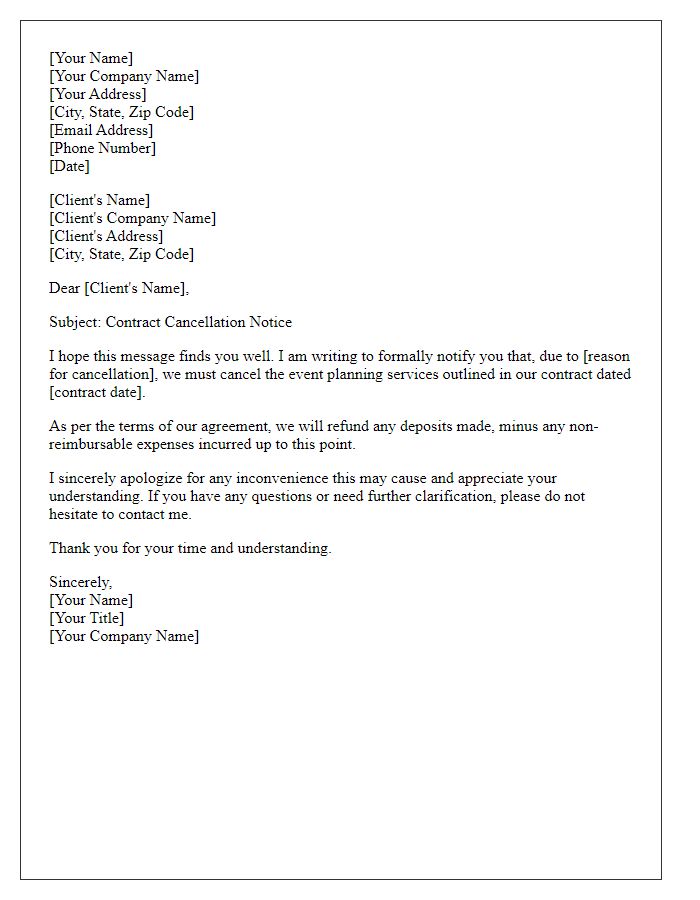
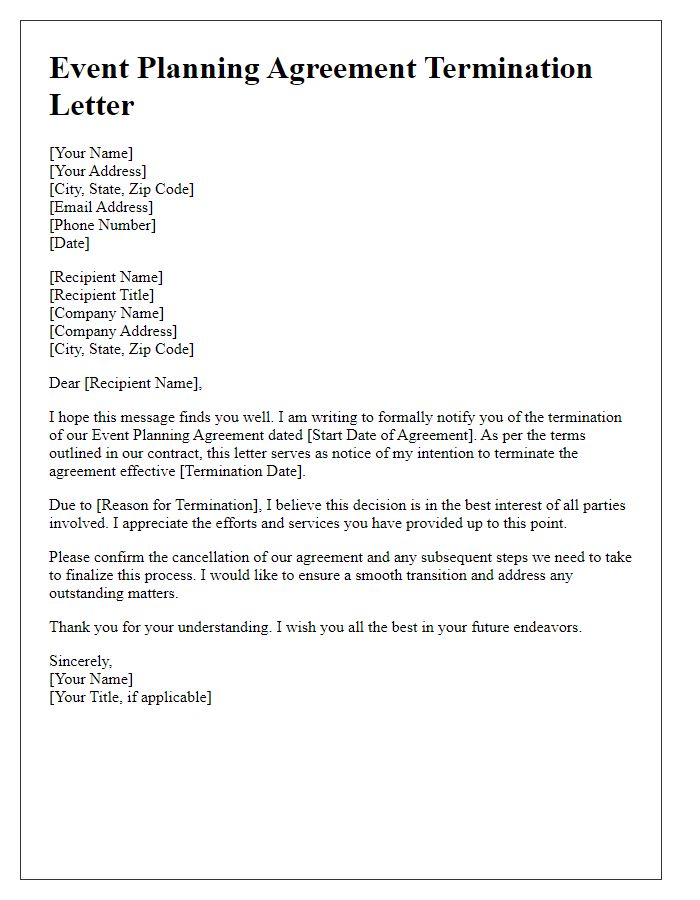
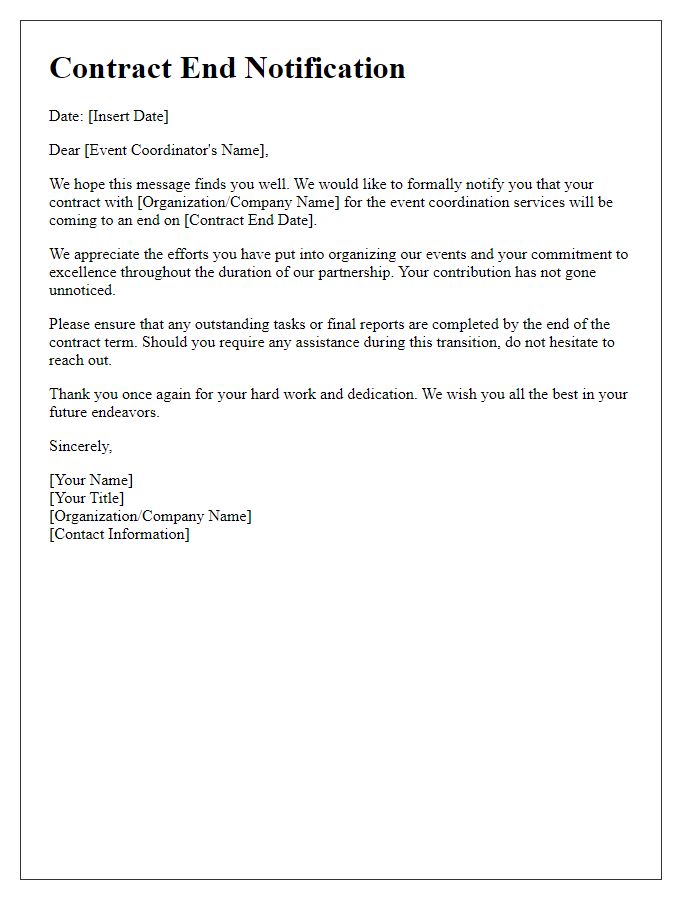
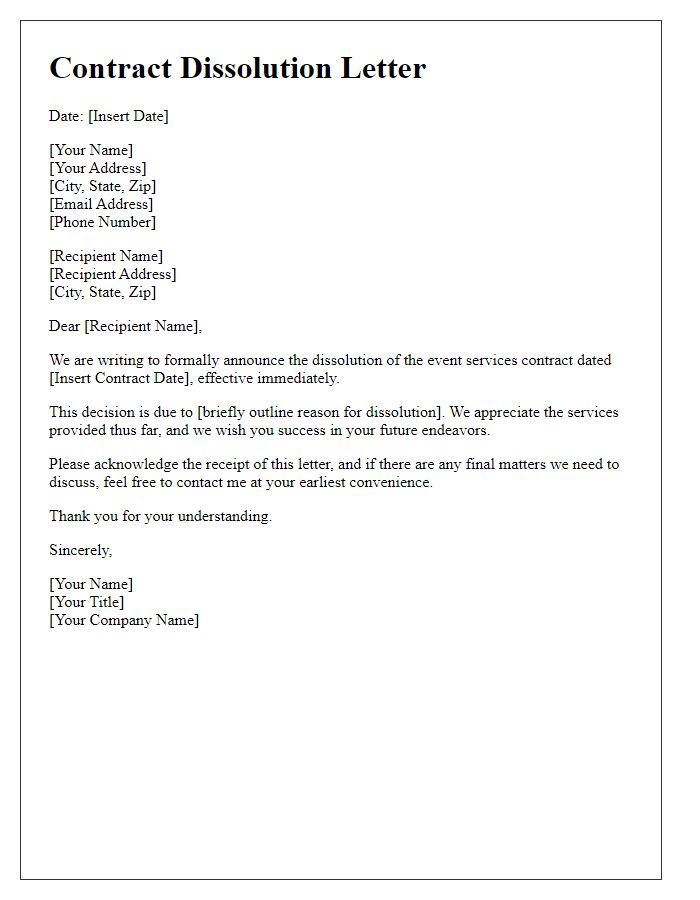
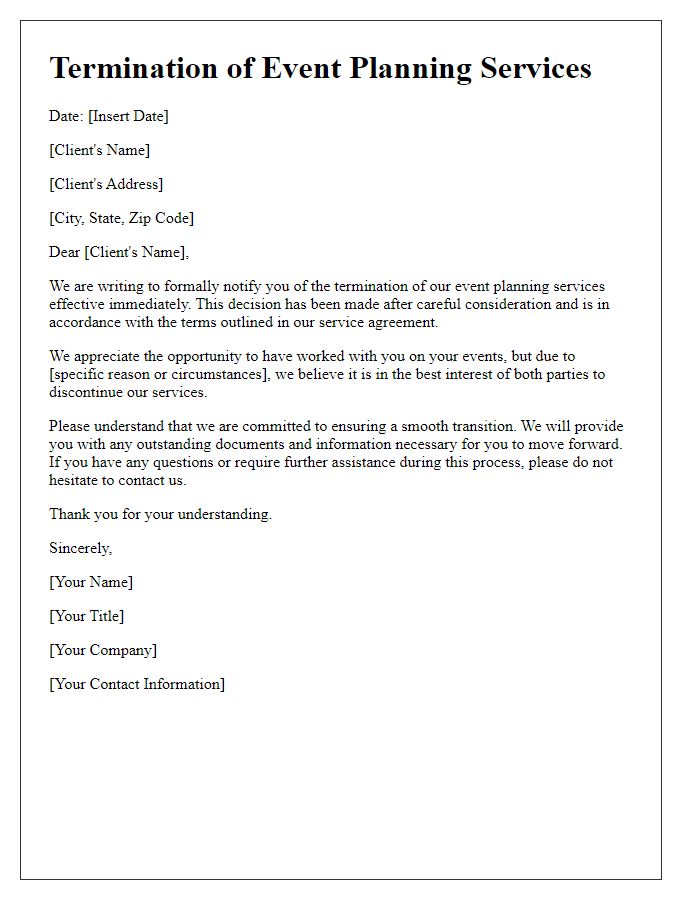
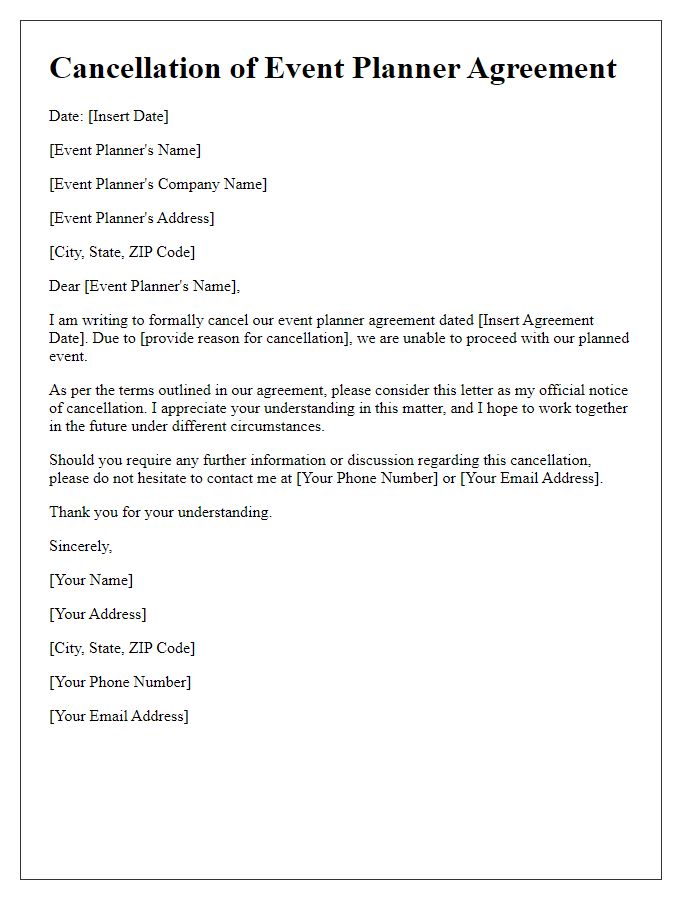
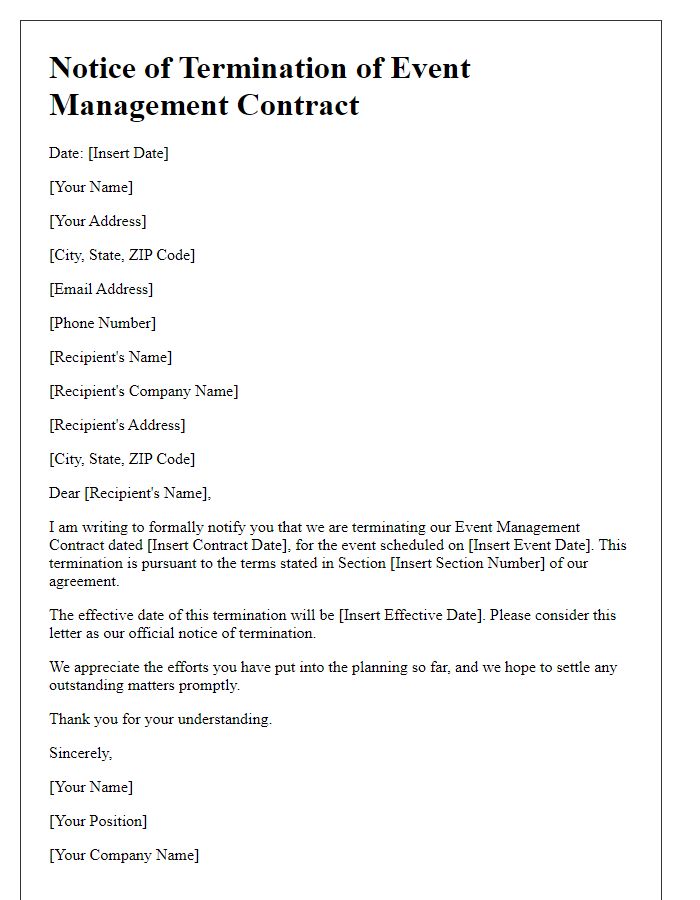
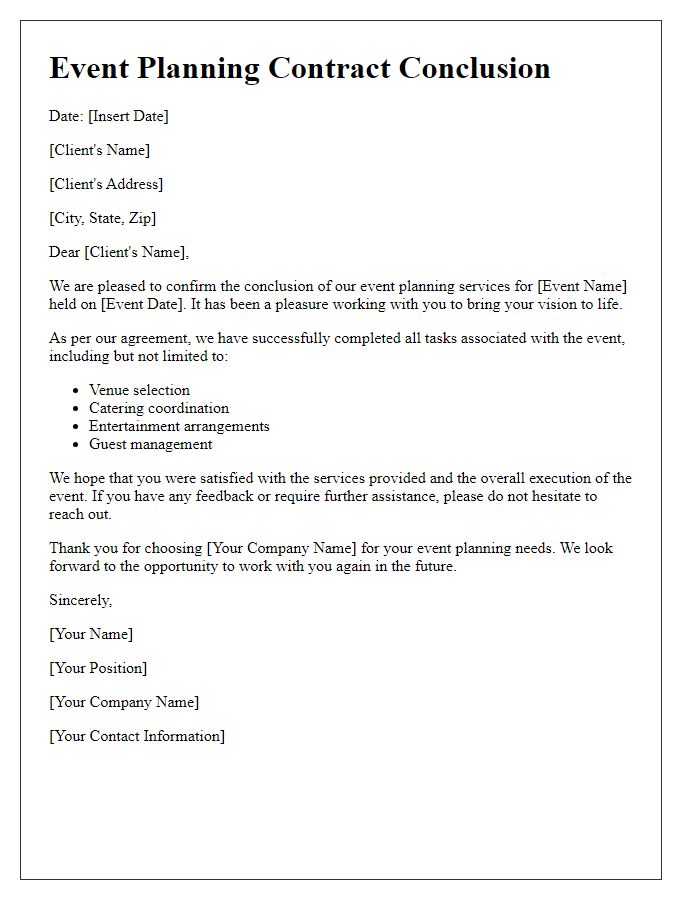
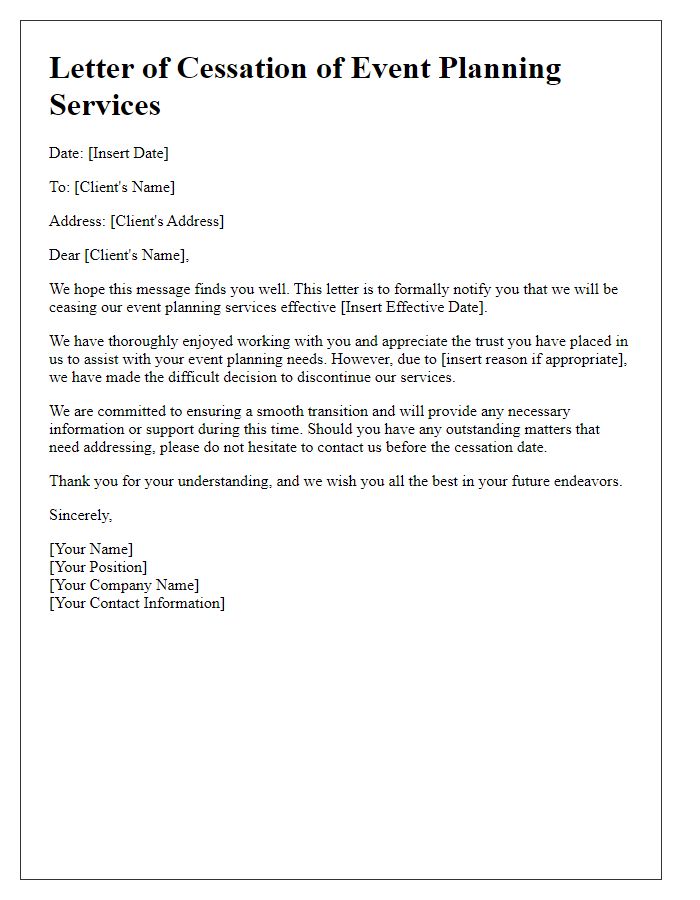
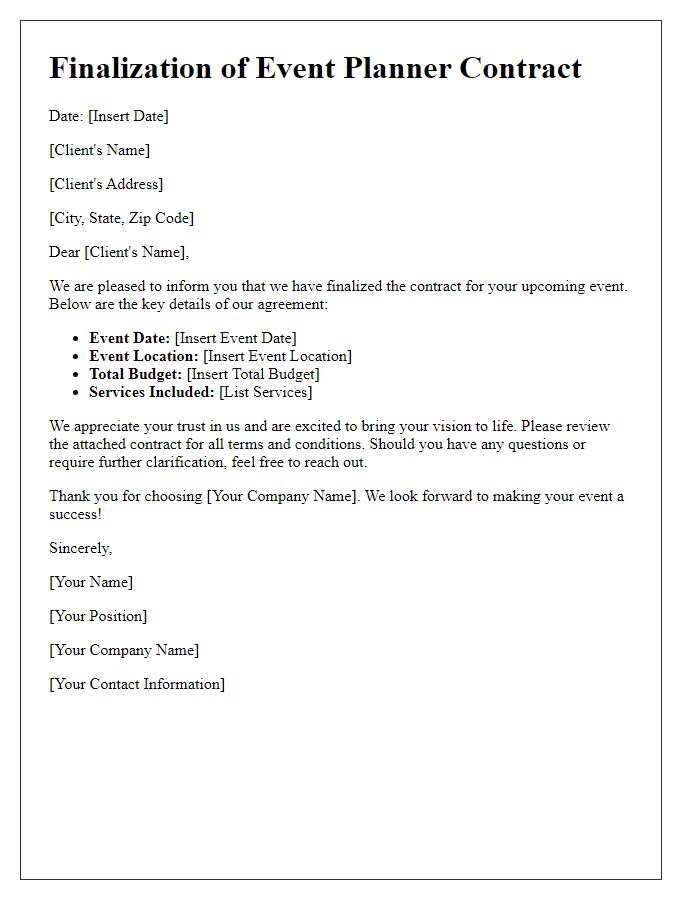

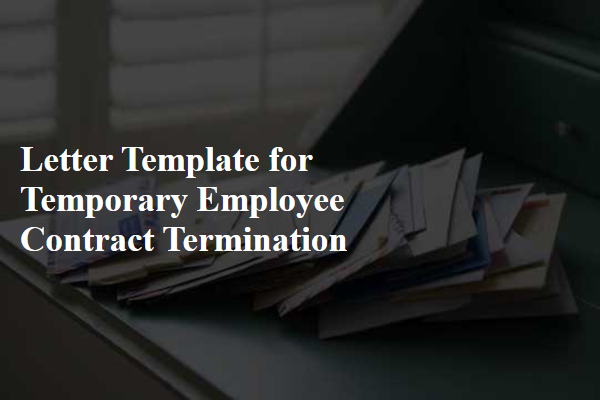
Comments